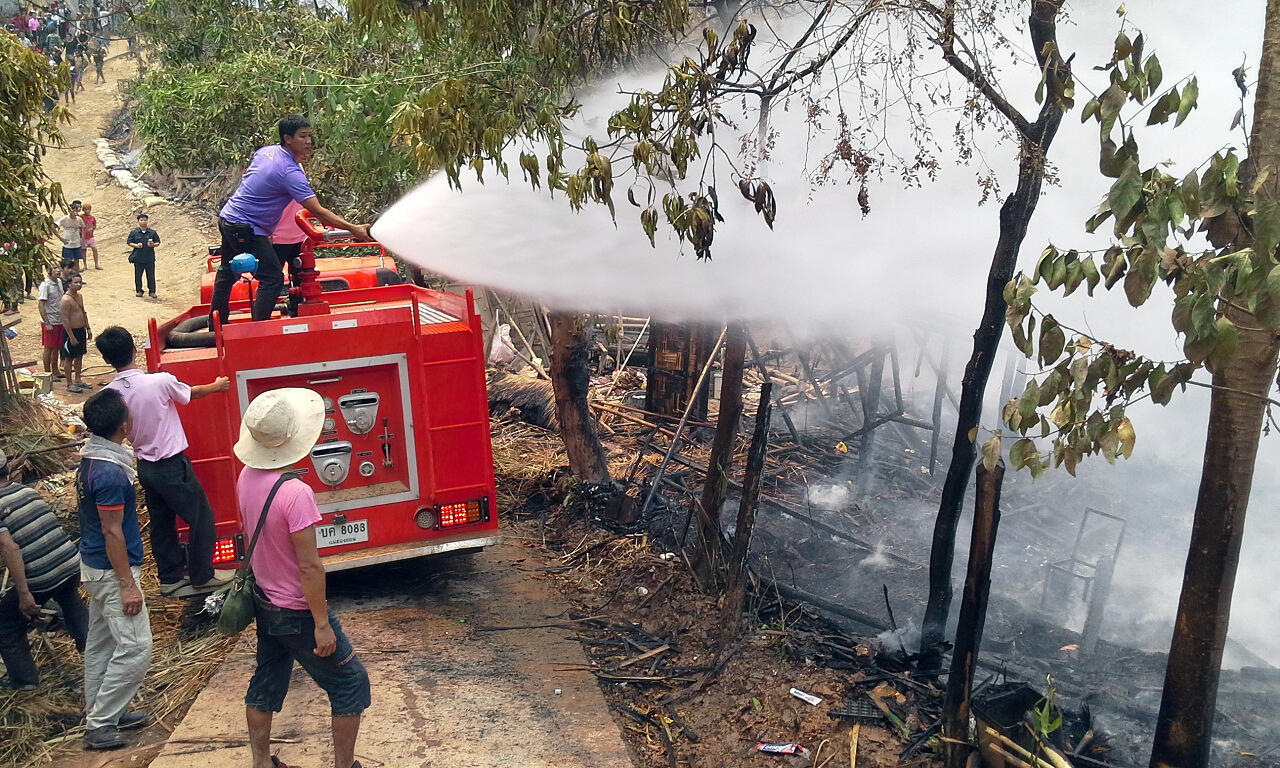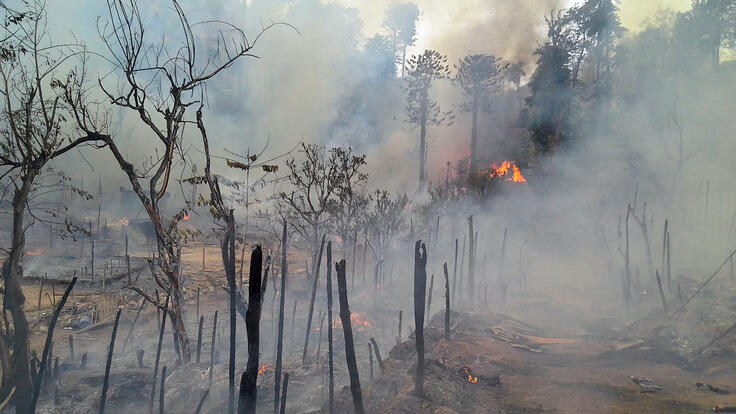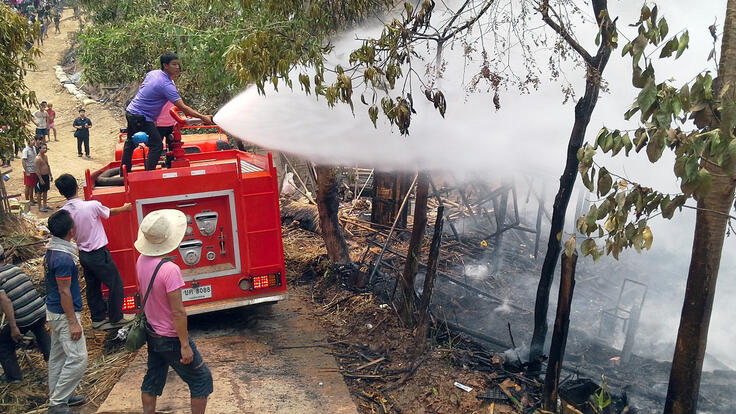
Mae Hong Son Province, Thailand - The International Rescue Committee is assisting over 700 Burmese refugees who were left homeless after fire broke out in the Ban Mae Nai Soi refugee camp in northern Thailand on April the 7th. Nearly 200 houses were destroyed in the fire, along with a school and several IRC health training facilities.
“It’s a terrible situation for families who were already displaced by war and conflict,” said Christine Petrie, the director of IRC programmes in Thailand. “We are doing everything we can to support the community.”
Ban Mai Nai Soi, located in Thailand’s Mae Hong Son Province near the border with Myanmar is home to over 13,000 mostly ethnic Karenni refugees.
The fast-moving blaze was prevented from spreading further thanks to fire response protocols put in place by the Thai authorities and the refugee community.
“Thankfully there were no serious injuries or fatalities,” Petrie said. “Given the size of the fire and how quickly it spread, it could have been much worse.”
The cause of the fire remains unknown, although open cooking fires have sparked blazes in the past. Refugees live in closely packed houses made from bamboo with thatched roofs and once a fire erupts, it can spread fast.
IRC teams responded immediately, providing emergency supplies including soap and other hygiene items. In addition, the IRC is ensuring that there is enough clean water and latrines for families who are now living in temporary facilities or are staying with friends and relatives in other areas of the camp.
“We are also assisting the Thai government with clearing the debris to prepare for rebuilding and working with the authorities who are gathering forensic evidence to determine the cause of the blaze,” Petrie said.
In the coming weeks, the IRC will reconstruct damaged buildings, latrines, water systems, as well as provide long-term mental health support to affected families.
Learn more
The IRC works in nine refugee camps along the Thailand-Myanmar border, providing drinking water and food as well as health care, sanitation, protection for children and abused women, and legal assistance and resettlement processing.

